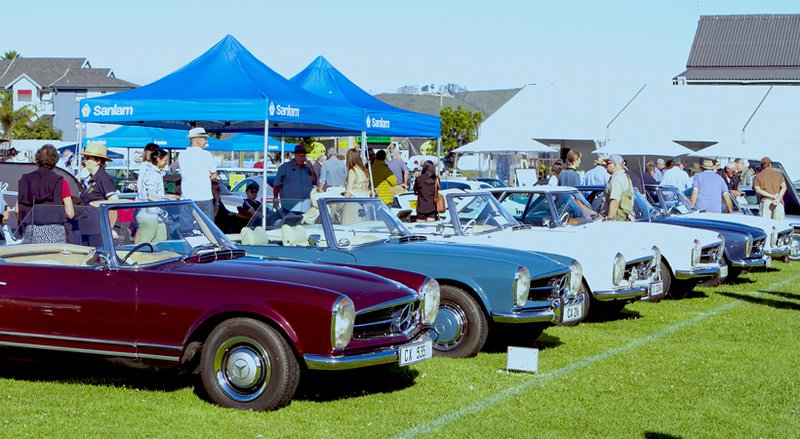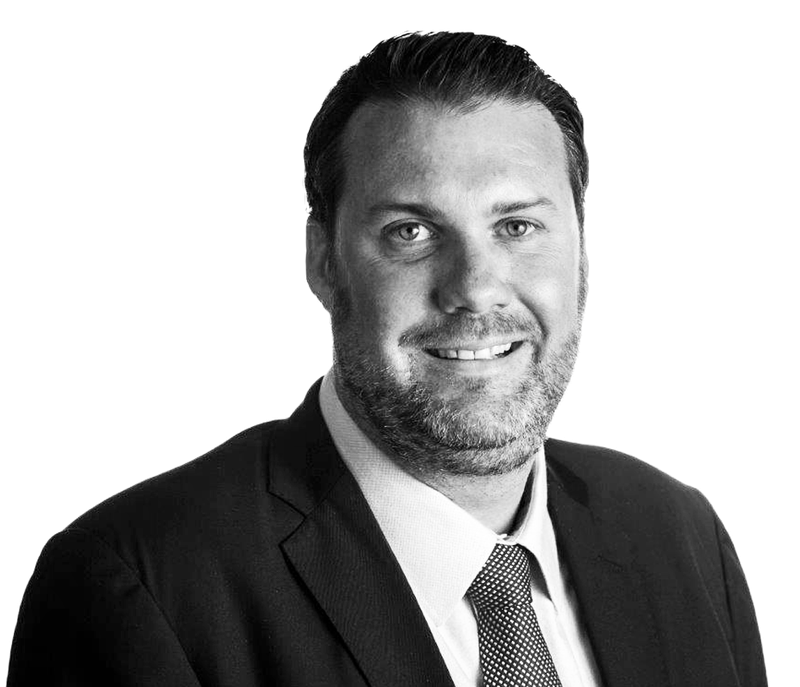Stay abreast of COVID-19 information and developments here
Provided by the South African National Department of Health
Classic cars:
a decade of making their marque
Investments of passion – in particular, classic cars – have delivered remarkable returns over the past decade. The main drivers of this noteworthy performance, and how investors should approach the classic car market, came under the spotlight at the recent 2019 Value in the Classic Car Market (VCCM) Historic Automobile Group International (HAGI) conference held directly after the Knysna Motor Show*, both of which I was fortunate enough to attend.
Looking back over the past decade, it’s hard to ignore the tailwind that near-zero interest rates gave consumers in the US and in Europe in purchasing power terms. This was in my view the single biggest impetus in the search for alternative asset classes, especially luxury goods or so-called ‘assets of passion’ – there wasn’t much incentive for investors to hold their cash in the bank or in developed market government bonds. And what better place to put excess money than in assets that can actually be enjoyed?
Within the luxury goods asset class, classic cars in particular have done exceptionally well. For the decade ending in December 2018, the Knight Frank Luxury Investment Index – presented during the VCCM HAGI conference – has measured collectable cars as gaining 258% in US dollar terms, trumping the 10-year returns of watches, wine, jewellery, stamps and art. The only other investment in this sector that would’ve provided a better return is rare and collectable whisky, which gained 582% over the period. By comparison, if you’d invested in the Nasdaq Composite, you’d have enjoyed a total return in US dollars (including dividends) of 330%, while the S&P500 delivered 250%.
The Luxury Investment Index compiled by Knight Frank, the world’s largest private property advisory company, focuses on the spending habits of individuals with wealth in excess of US$30 million, excluding the primary residence. This comprehensive report on the world of the really wealthy is well researched and based mainly on the results of well-known global auction houses, as well as private transactions. The data on classic cars is obtained from HAGI, the global authority in this field, which has been tracking classic and rare cars through various auctions over the past few decades.
The best-known international auction is the RM Sotheby’s auction held annually in Pebble Beach in Monterey, California. In 2008 this auction netted US$35 million – the average price of a vehicle was US$172 439. In 2018 the same auction recorded US$158 million, with an average price of US$1.27 million. The average auction price thus increased by 22.1% per year over the decade.
Looking at individual sales, the most expensive car sold at the 2008 auction was a 1963 Ferrari 250 GTO, at a price of US$28.5 million. At the 2018 auction, a 1962 Ferrari 250 GTO sold for US$48.4 million, giving that particular marque and series a return of 5.5% per year, which isn’t great, but nonetheless stable and defensive. At last year’s Gooding & Co Pebble Beach auction a 1935 Duesenberg Model J once owned by actor Gary Cooper was sold for US$22 million, a record for a pre-war car and the most expensive American car ever sold.
What’s the best way of approaching the classic car market, especially if you’re a newbie investor in this asset class? It emerged during the conference that the first thing you’ll need is a deep knowledge of the industry. You’ll have to do a lot of homework to learn which collectable cars will appreciate in value. Investment cars vary dramatically in price tag and returns, depending on their rarity and condition, and the size of the buyer’s pocket.
Scarcity remains one of the most important factors in appreciating prices in classic cars. Every classic car that’s left to rust, or scrapped or shipped abroad, leaves a gap that can’t be replaced. Scarcity, along with good looks, and original engine and components, original paint and upholstery, and low mileage, are a winning combination.
Other basic principles to keep in mind include the provenance – or story – of the vehicle. You need to understand its journey – most of the investment cars being bought or sold around the world today have a story, some more intriguing than one might imagine. Other important factors are production numbers, whether the car has matching engine and chassis numbers, its originality, and in some cases, mileage.
Besides the initial cost of classic cars, buyers also need to plan for taking care of and protecting them, which includes some kind of real estate to house their vehicles, and reliable insurance. And you also need to drive your car from time to time!
While it’s impossible to pinpoint which vehicles currently have the best investment potential, it’s safe to say the ultra-rare and pristine cars being auctioned at renowned shows worldwide should remain sought-after and will appreciate in value over time. Just like high-end artworks, these vehicles are seen as the Picassos of the classic car world.
Investors entering this market for the first time would do well to look at the younger classics: 1970s, 1980s and early 1990s models, V8 and preferably manual transmission. Mercedes models from the 1970s are becoming sought-after, with prices rising steadily. Of course, as is the case in the retail sector, brand is crucial. The key is to get a vehicle from a good marque before there’s a great demand for that model. One that stands out far above any other when it comes to collectable status is Ferrari. To date, 59% of the classic cars sold at auctions for more than US$5 million have been Ferraris.
Generally speaking, when it comes to the ultra-rare collectable cars sold on auction, prices very much depend on what buyers are willing to pay. If you’re looking to start investing in collectable cars, especially if you’re thinking of importing a vehicle, you’d currently be ‘paying up’ in my view. Why? The rand is now slightly weaker, which is not in your favour. Also, the asset class has experienced strong returns for the past decade, the US bull market is in extended territory, and developed market interest rates are poised to start rising, which may result in consumers starting to save more than spend.
However, for long-term investors whose level of investment is at the top end of the market, it would be advisable to jump right in, without delay. I would be patient with certain marques and series, such as the Mercedes Pagoda and the Porsche 911 from the 1960s – they’ve enjoyed phenomenal growth that is in my view unsustainable over the long term. Apart from these few exceptions, however, there are currently many classic cars on the market that are fast gaining huge collectable appeal. Start doing your homework today!
Also see Stanley Broun’s article on the fiduciary and tax implications of investing in luxury items or ‘assets of passion’.

* The prestigious Knysna Motor Show, which drew thousands of classic car aficionados from all over South Africa to view the most head-turning heritage vehicles in the country, was sponsored by Sanlam Private Wealth.
Sanlam Private Wealth manages a comprehensive range of multi-asset (balanced) and equity portfolios across different risk categories.
Our team of world-class professionals can design a personalised offshore investment strategy to help diversify your portfolio.
Our customised Shariah portfolios combine our investment expertise with the wisdom of an independent Shariah board comprising senior Ulama.
We collaborate with third-party providers to offer collective investments, private equity, hedge funds and structured products.
Your wealth plan is designed with you in mind. Your financial reality, aspirations and risk profile.
Carl Schoeman has spent 22 years in Investment Management.

Have a question for Carl?
South Africa
South Africa Home Sanlam Investments Sanlam Private Wealth Glacier by Sanlam Sanlam BlueStarRest of Africa
Sanlam Namibia Sanlam Mozambique Sanlam Tanzania Sanlam Uganda Sanlam Swaziland Sanlam Kenya Sanlam Zambia Sanlam Private Wealth MauritiusGlobal
Global Investment SolutionsCopyright 2019 | All Rights Reserved by Sanlam Private Wealth | Terms of Use | Privacy Policy | Financial Advisory and Intermediary Services Act (FAIS) | Principles and Practices of Financial Management (PPFM). | Promotion of Access to Information Act (PAIA) | Conflicts of Interest Policy | Privacy Statement
Sanlam Private Wealth (Pty) Ltd, registration number 2000/023234/07, is a licensed Financial Services Provider (FSP 37473), a registered Credit Provider (NCRCP1867) and a member of the Johannesburg Stock Exchange (‘SPW’).
MANDATORY DISCLOSURE
All reasonable steps have been taken to ensure that the information on this website is accurate. The information does not constitute financial advice as contemplated in terms of FAIS. Professional financial advice should always be sought before making an investment decision.
INVESTMENT PORTFOLIOS
Participation in Sanlam Private Wealth Portfolios is a medium to long-term investment. The value of portfolios is subject to fluctuation and past performance is not a guide to future performance. Calculations are based on a lump sum investment with gross income reinvested on the ex-dividend date. The net of fee calculation assumes a 1.15% annual management charge and total trading costs of 1% (both inclusive of VAT) on the actual portfolio turnover. Actual investment performance will differ based on the fees applicable, the actual investment date and the date of reinvestment of income. A schedule of fees and maximum commissions is available upon request.
COLLECTIVE INVESTMENT SCHEMES
The Sanlam Group is a full member of the Association for Savings and Investment SA. Collective investment schemes are generally medium to long-term investments. Past performance is not a guide to future performance, and the value of investments / units / unit trusts may go down as well as up. A schedule of fees and charges and maximum commissions is available on request from the manager, Sanlam Collective Investments (RF) Pty Ltd, a registered and approved manager in collective investment schemes in securities (‘Manager’).
Collective investments are traded at ruling prices and can engage in borrowing and scrip lending. The manager does not provide any guarantee either with respect to the capital or the return of a portfolio. Collective investments are calculated on a net asset value basis, which is the total market value of all assets in a portfolio including any income accruals and less any deductible expenses such as audit fees, brokerage and service fees. Actual investment performance of a portfolio and an investor will differ depending on the initial fees applicable, the actual investment date, date of reinvestment of income and dividend withholding tax. Forward pricing is used.
The performance of portfolios depend on the underlying assets and variable market factors. Performance is based on NAV to NAV calculations with income reinvestments done on the ex-dividend date. Portfolios may invest in other unit trusts which levy their own fees and may result is a higher fee structure for Sanlam Private Wealth’s portfolios.
All portfolio options presented are approved collective investment schemes in terms of Collective Investment Schemes Control Act, No. 45 of 2002. Funds may from time to time invest in foreign countries and may have risks regarding liquidity, the repatriation of funds, political and macroeconomic situations, foreign exchange, tax, settlement, and the availability of information. The manager may close any portfolio to new investors in order to ensure efficient management according to applicable mandates.
The management of portfolios may be outsourced to financial services providers authorised in terms of FAIS.
TREATING CUSTOMERS FAIRLY (TCF)
As a business, Sanlam Private Wealth is committed to the principles of TCF, practicing a specific business philosophy that is based on client-centricity and treating customers fairly. Clients can be confident that TCF is central to what Sanlam Private Wealth does and can be reassured that Sanlam Private Wealth has a holistic wealth management product offering that is tailored to clients’ needs, and service that is of a professional standard.